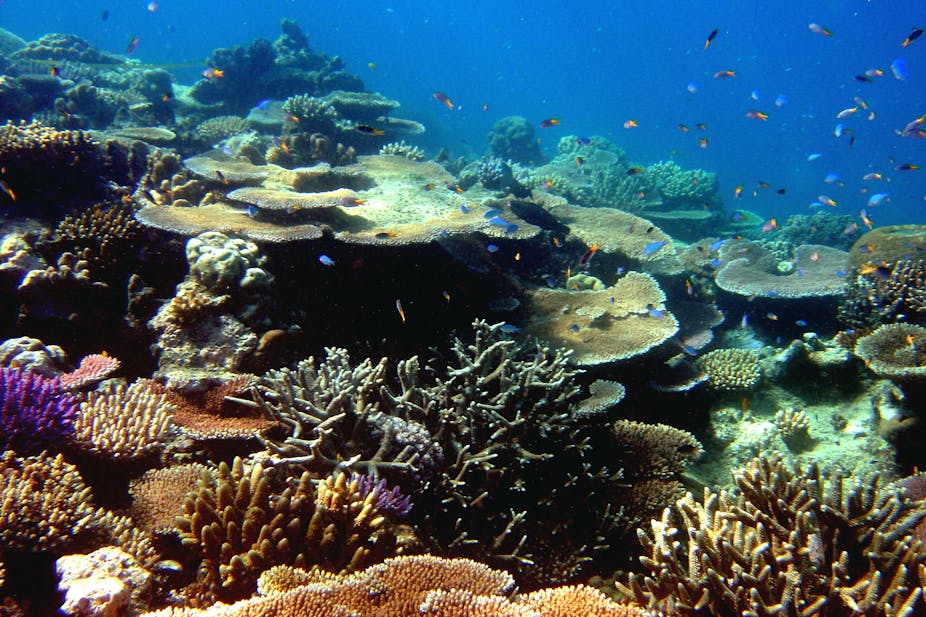Environment Minister Tony Burke announced the final proposed Commonwealth marine protected area (MPA) network last month. The network would be the largest in the world, covering more than a third of Commonwealth waters. The announcement has raised debate about both the costs and benefits of the network. In particular, recent media reports suggested that MPAs might mean more illegal boats. Here we examine this assertion by focusing on the Coral Sea.
The case of the Coral Sea
The Coral Sea region has been called the crown jewel in the MPA network. It has significant environmental assets including the presence of large numbers of deep-water fish such as sharks, tuna and marlin and significant deep sea canyon habitat. The announced Coral Sea MPA network places ~51% of the region in Marine National Park zone and will protect important marine life and critical nesting sites for the green turtle and a range of seabird species.
Attracting illegal boats?
One concern being raised is the potential for the MPAs to increase illegal fishing across our Northern waters. Is this plausible?
“Fishing the line” - where fishers perceive the benefits of the reserve, namely more fish and bigger fish, and thus fish directly against the reserve to increase catches - has been documented in marine reserves. This is a signal that the reserve is doing its job and protecting fish stocks. But it may also tempt illegal fishers to take advantage of healthy fish stocks.
However, the argument that MPAs will increase illegal fishing and boats neglects the reality of management. When a MPA is declared, the government undertakes a management plan for the region. A management plan would consider the likely future threats to the MPA, including illegal fishing activity (both domestic and international), and subscribe management actions to address these threats. A management plan then receives funding so that management actions can be undertaken. For example, in 2008-2009 the Great Barrier Reef Marine Park Authority had an operating budget of ~$45 million (for covering the 344,520 square kilometres). This budget funded critical management actions including surveillance for and prosecution of illegal fishing. Similarly, in 2009 the Commonwealth government allocated ~$3.4 million to manage the ~500,000 km2 of other Commonwealth MPAs. The new MPAs, once implemented, will receive funding to engage in appropriate management actions as outlined by plans designed for each region.
For example, our research suggests that for protection levels of 30-100% in the Coral Sea region (972,000 km2), an annual management budget ranging from $8 to $24 million would allow for management of the region at similar levels to the Great Barrier Reef Marine Park. While illegal foreign fishing is currently a low threat in the Coral Sea, our budget allows for dedicated aircraft surveillance, as well as vessel compliance monitoring, to detect and prosecute illegal fishing.
If illegal fishing increases, the appropriate mechanisms for detecting and prosecuting these vessels will be in place. It also means that surveillance would be higher than at present, which could potentially reduce illegal activities. While our research addresses the specific management context and needs of the Coral Sea, the types of management actions and budget needed to support them will likely be similar for the marine reserves across Northern Australia.
New problems or new opportunities?
Illegal fishing already occurs in the Northern Australian waters. The announcement of formal MPAs will result in increased funding to support management of these waters, including dedicated surveillance activities which may not otherwise have been funded. This may provide an opportunity to reduce the existing illegal fishing, not create new illegal fishing.
For example, in the Chagos Archipelago, illegal foreign fishing has been noted as a threat to the pelagic tuna and shark fisheries, and it is hoped that the declaration of a no-take MPA will result in the legal and financial support needed to address this threat. With the right management actions, the possible problems, such as attracting new illegal fishing, could be turned into new opportunities to address existing problems.
Comments welcome below.

